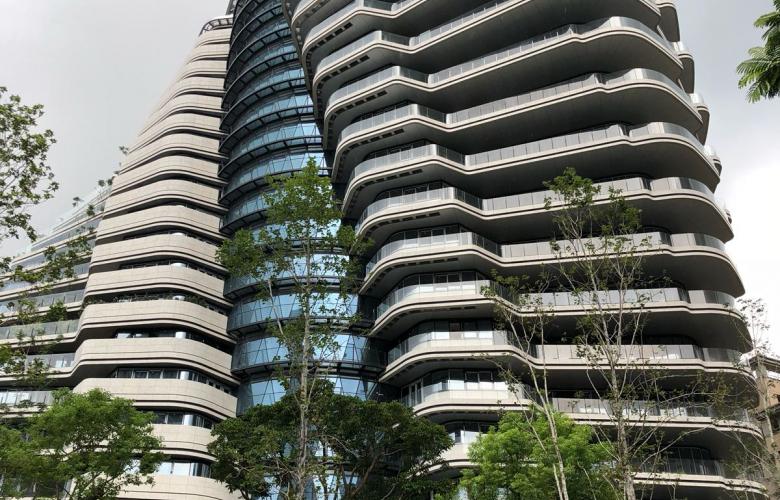Jamie Chang, Head of Research at JLL Taiwan says the future of Taipei's residential real estate market shows promise, with robust levels of demand continuing into the remainder of 2018 and into 2019.
Chang spoke with WILLIAMS MEDIA about Taipei's residential market, its performance in 1H 2018 and the outlook of the remainder of 2018 and beyond.
Currently, interest rates on mortgages are considered low for the property market with the average mortgage rate at 1.85% and as low as 1.6% for first-time buyers.
Chang reveals that with an urbanisation expanse of 80%, homeownership levels are at a high of 89.5% according to Taiwan's 2017 census data.
The majority of the residential market is classified freehold with less than 1% of housing stock reserved for public and social housing needs.

Source: JLL Taiwan
According to Chang, high homeownership stems from the "Culture and traditional cognition where owning a property guarantees personal stability and wealth."
In Taiwan, Chang explains, the number of owned residences per family generally depends on the number of children. "For instance, if there are two kids in a family, then they may own three houses. One for the parents and two for two kids."
Such mentality holds the demand and prices in the residential market, which means affordability in the market "has always been low."
"The latest statistics published by the central government showing the mortgage burden ratio is 61.5%, and the housing price versus income ratio is 15.0 times for Taipei City in 2Q18," says Chang.
"Mortgage burden ratio refers to the percentage one typical middle-class family contributes of their monthly income to one mortgage payment. Housing to income ratio measures the housing prices to annual middle-class income. However, both ratios have dropped slightly due to the government’s efforts to cool the housing market in recent years."
Chang also reveals that the government introduced various market cooling measures such as mortgage controls, Real Estate Transaction Declaration, and property tax reforms beginning Q3 2012, and thus housing prices since then have entered a price adjustment period.
"Homebuyers now often use the prices published by government’s Real Estate Transaction Declaration website as their bargaining bases to start negotiations with agents. Therefore, a visible price drop can be seen before and after Q3 2012," Chang adds.
"However, since the prices have fluctuated downwards, many prospective buyers have remained observant waiting for the market to reach the trough."
Luxury and high-end residential units (where price exceeds NTD 80 million is defined by the government to be luxury housing) are impacted the most, where the mortgage controls are targeted at high-end residences and/or third units owned. Therefore, many luxury buyers have reduced prices, developers have reduced supplies, and prices dropped," Chang reports.
"The average luxury housing price of the City is NTD 1.67 million per ping* (-4.6% YOY), and for the general grade is NTD 593,000 per ping in 2Q18 (+5.3% YOY)."
While luxury housing prices dropped, Chang explains the general grade housing price increased due to elevated demands in pre-owned and slightly aged units. "Many youngsters or newlywed couples have preferred housing within the major CBDs, but since the new buildings generally pose higher prices, their attentions have turned to aged and/or pre-owned units because the prices are more affordable and most aged buildings have fewer units - thus, when urban renewal takes place, the present owners could retain more space with redistribution."
Taipei's future outlook:
- For the near future, potential buyers are likely to remain closely observant as the demand continues to remain robust.
- Housing price is likely to continue increasing within major CBDs at a moderate pace as available buildable parcels are scarce and while buyers are extremely sensitive to prices.
- Housing starts are likely to decrease in 2018 entering 2019, especially for the luxury grade.
- Transaction volume is projected to be slightly slower.
- New supplies of the general grade are likely to be small-to-mid sized units in order to cater the younger cohort.
"Additionally, although the current residential market may not seem particularly robust, developers in the past seven quarters have been actively acquiring lands in major municipalities. It may imply their long-term projection is positive towards the market. Or many of them may simply re-sell the parcel as land resources are limited in Taiwan's urban centres," Chang concludes.
For more information or to discuss Taipei's residential market, phone or email Jamie Chang, Head of Research at JLL Taiwan, via the contact details listed below.
* 1 ping=3.305 SQM; 1 USD=30.5 NTD
Similar to this:
Danang condotels, apartments, and second-home villas perform well in 1H 2018, Savills
Best locations for tech enterprises: Bangalore, Singapore & Shenzhen
As the market shows signs of cooling, Hong Kong developers lower prices to tempt buyers











